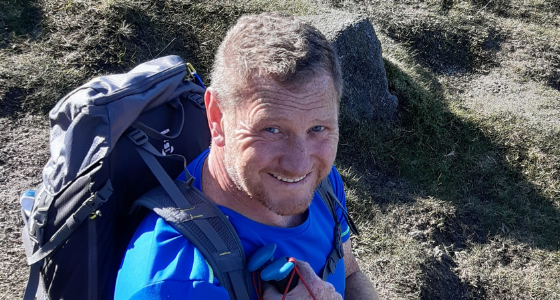For retired firefighter Owen Spiers, overcoming the alcohol addiction he’d battled for more than 20 years was one of the hardest things he thought he’d ever have to do.
But when he was later diagnosed with MS, it led to another addiction – this time to over-the-counter medication – and it sparked years of mental health issues.
Luckily, following his long career with Northern Ireland Fire and Rescue, Owen, 52, knew of the support the charity could offer beneficiaries. He has subsequently been helped by several of our expert teams over the years – including our Living Well Groups – and the video consultations he’s had recently have proved particularly instrumental in his recovery.
“I had my first alcoholic drink when I was 18,” says Owen. “I was always a teetotaller until then, as my father had been, but on my 18th birthday my friends decided they’d put some alcohol into my soft drink. It was a joke, but I woke up the next morning and knew it was an issue straight away.
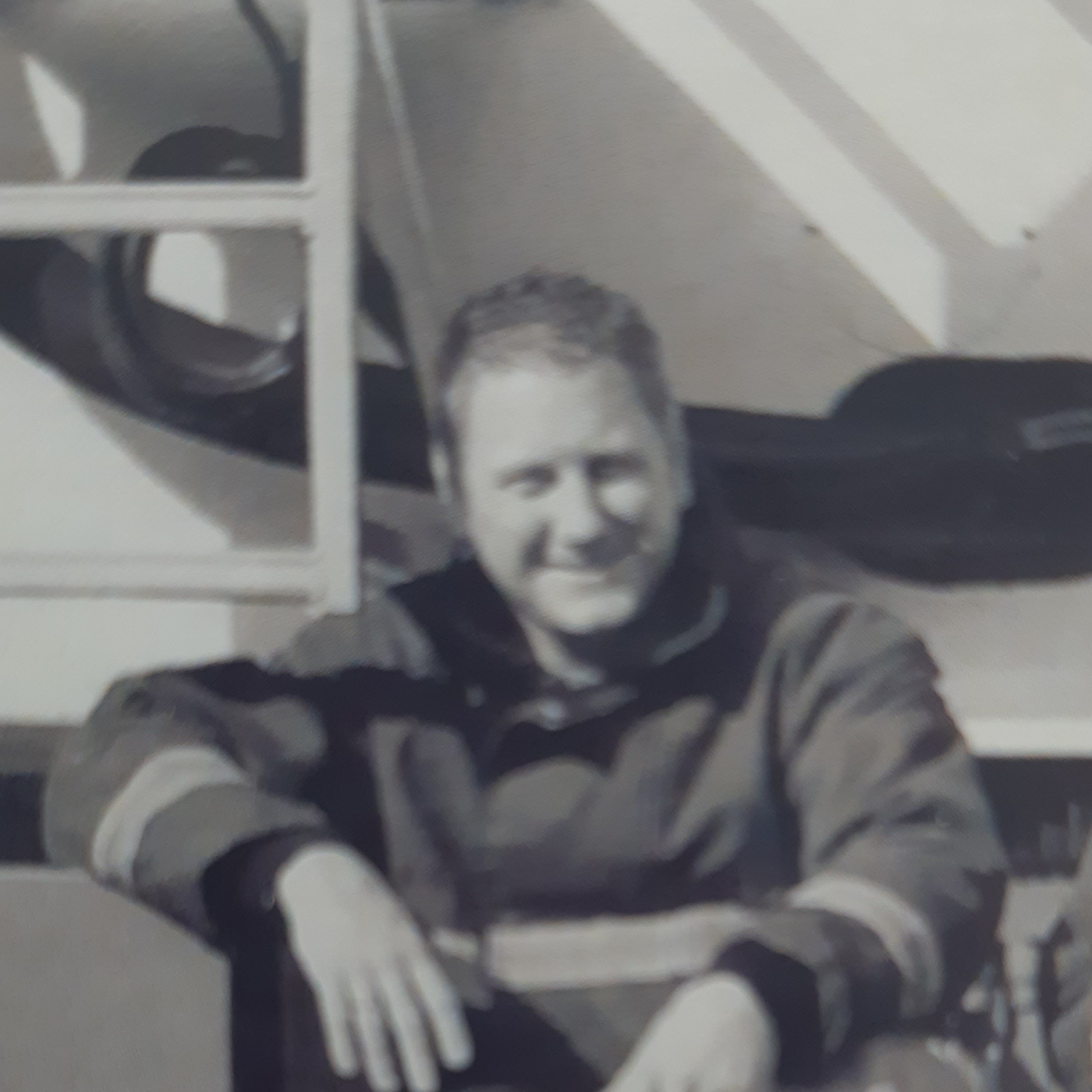
“That same year, my father died. I was only 18 and that really triggered a lot of things – I think I used alcohol at that stage to take away the pain, the hurt and the loss, and the hole of emptiness when I lost him.
“When I started to drink I found it difficult to stop. I kept wanting to chase this feeling that alcohol used to do to my system, it took away all my fears. I eventually spoke to a doctor when I was 22 because I knew I had an issue, but it just escalated. It took me until I was 42 to stop drinking.”
Owen says he would find any excuse he could to drink around his job as a firefighter, using the 4-day breaks in his shift pattern to go into restaurants alone or at lunch, just as an excuse to have a glass of wine.
“I got a lot of help from the charity – it was The Benevolent Fund then – and the guys at my station, but I have to say in the 90s over here, drinking was a big part of your life off shift,” says Owen. “I was eventually told that my liver was starting to work hard and could possibly be damaged and that’s what finally pushed me to change.
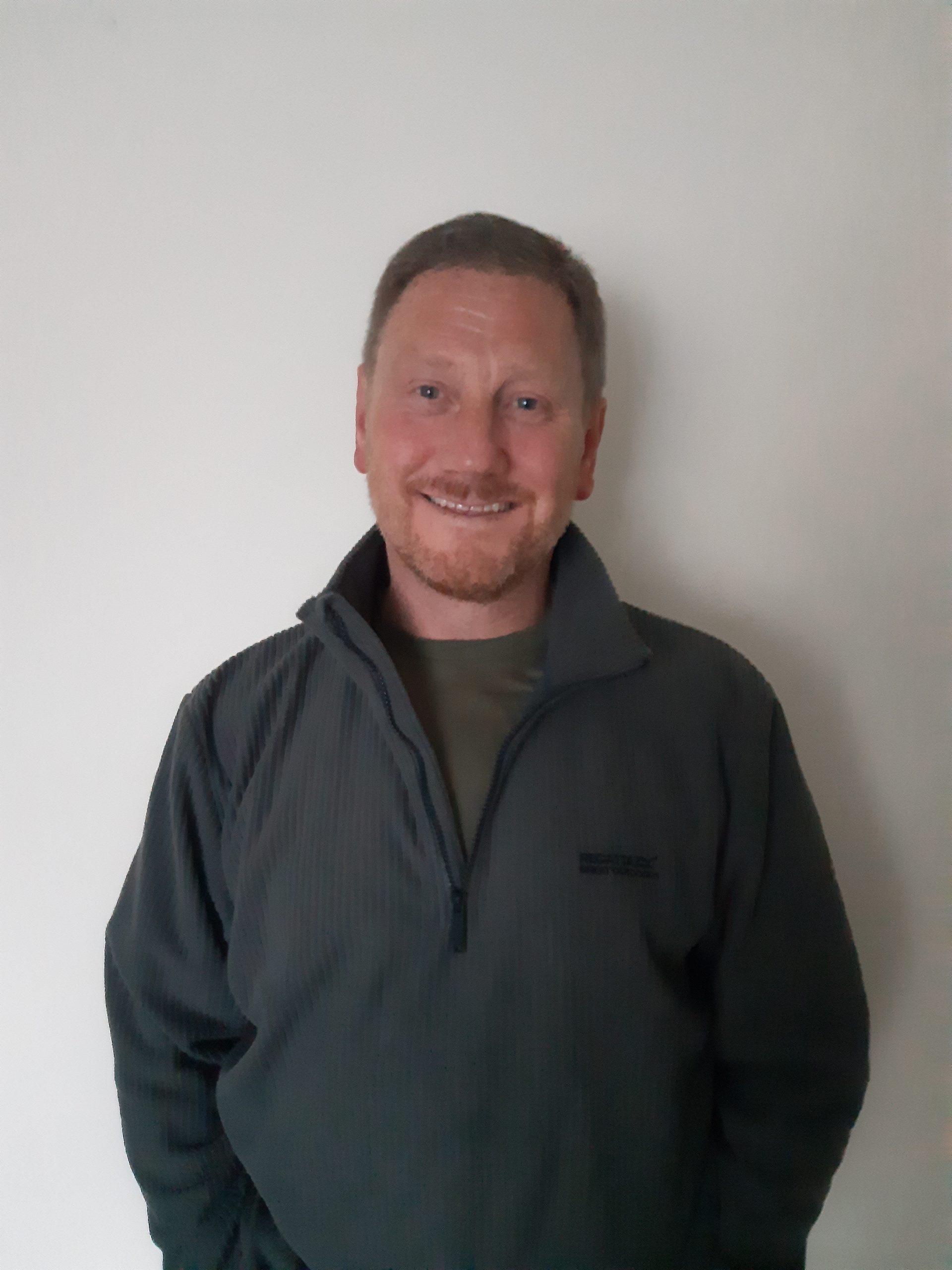
“In my head, I’d thought I was invincible, that I was bulletproof. I realised I needed more help so I went to AA and I’ve been with them ever since.”
The years that followed were transformational for Owen, as he focused on a healthier lifestyle. However, he began suffering with some pain in his hand and foot around the same time – completely unrelated to the alcohol.
“They thought I’d done damage with the amount of alcohol I was drinking at first,” says Owen. “But when they looked into it, they realised I had MS.
“I really struggled with that news. I’d been two years sober when I officially got the diagnosis and I was expecting that my life would have changed dramatically. My first thought was, ‘why me?’ I’d been through the alcohol, and now I had MS.”
Right before the diagnosis, Owen had begun taking over-the-counter medication for the pain. He later realised it contained codeine, which can be very addictive.
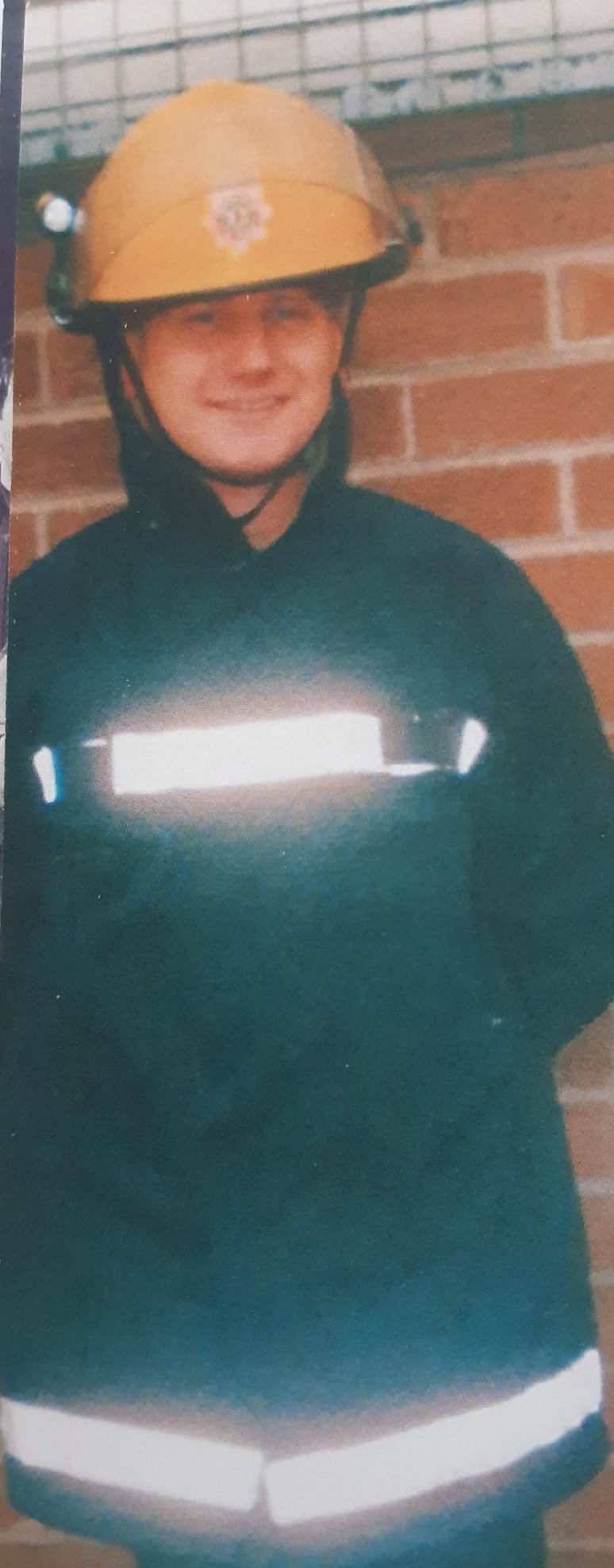
“I got addicted to those very quickly, I’d essentially jumped from one addiction to another,” says Owen. “When I realised I was getting a nice feeling from them, I started taking them a lot more than I should have. When I tried to stop, that’s when I realised I had a severe problem, I was having cravings for them and suffering withdrawals. It was feeling suicidal and in deep, deep depression. Everything tumbled down.
“I was coming to terms with the fact that I could possibly be losing my career with the MS, plus this new addiction.”
Around this time, Owen reached out to the charity for support with his MS, desperate to ensure he could keep working in the job he loved. Over the following years, he was offered two stays at Harcombe House, our centre in Devon, as well as another stay at Jubilee House in Penrith.
“They helped me with both my physical health and mental health,” says Owen. “Initially it was strength programs, to help my balance, and I kept attending my AA meetings every night while I was there. Then when I went back to Harcombe for a second time, everything had improved greatly.”
“They were brilliant. They got me back on track. It was all over video calls.”
Owen Spiers
Owen managed to overcome his addiction to the painkillers, but he was eventually forced to take himself off the run at work, as his balance began to be impacted by the MS.
“I knew if something was to happen, either I was going to hurt myself or worse, one of my colleagues was going to get hurt,” says Owen. “Jubilee House had helped me to understand I’d done everything I could. I was put through my paces and realised while I could do all the physical stuff, the balance was a problem.”
Despite his recovery going well, Owen suffered a knock back last year, shortly after the first UK lockdown.
“I started going into a dark place,” Owen says. “I had a relapse with the codeine. I’d been off it for five years at that point. What I’d learnt through my meetings was that you needed to be immediately honest with yourself, so I let my wife and family know what had happened very quickly. I phoned the charity and got a virtual counselling session within a week.
“It really, really helped. I explained that I’d had 10 years’ experience of doing things right, and I’d come off track. I needed to get my thinking straight again, and they were brilliant. They got me back on track. It was all over video calls.”
Owen was also offered help with his physical fitness over the video consultation system, having been told his cholesterol levels were too high and he risked having to go onto statins.
“I’d recommend anyone get in touch,” says Owen. “The online sessions 100% helped me. It’s about turning negative thoughts to positives. One of the things I’ve learnt is if you look in the mirror, most of your problems are staring right back at you. It’s taking that time to think things through before doing anything silly.”
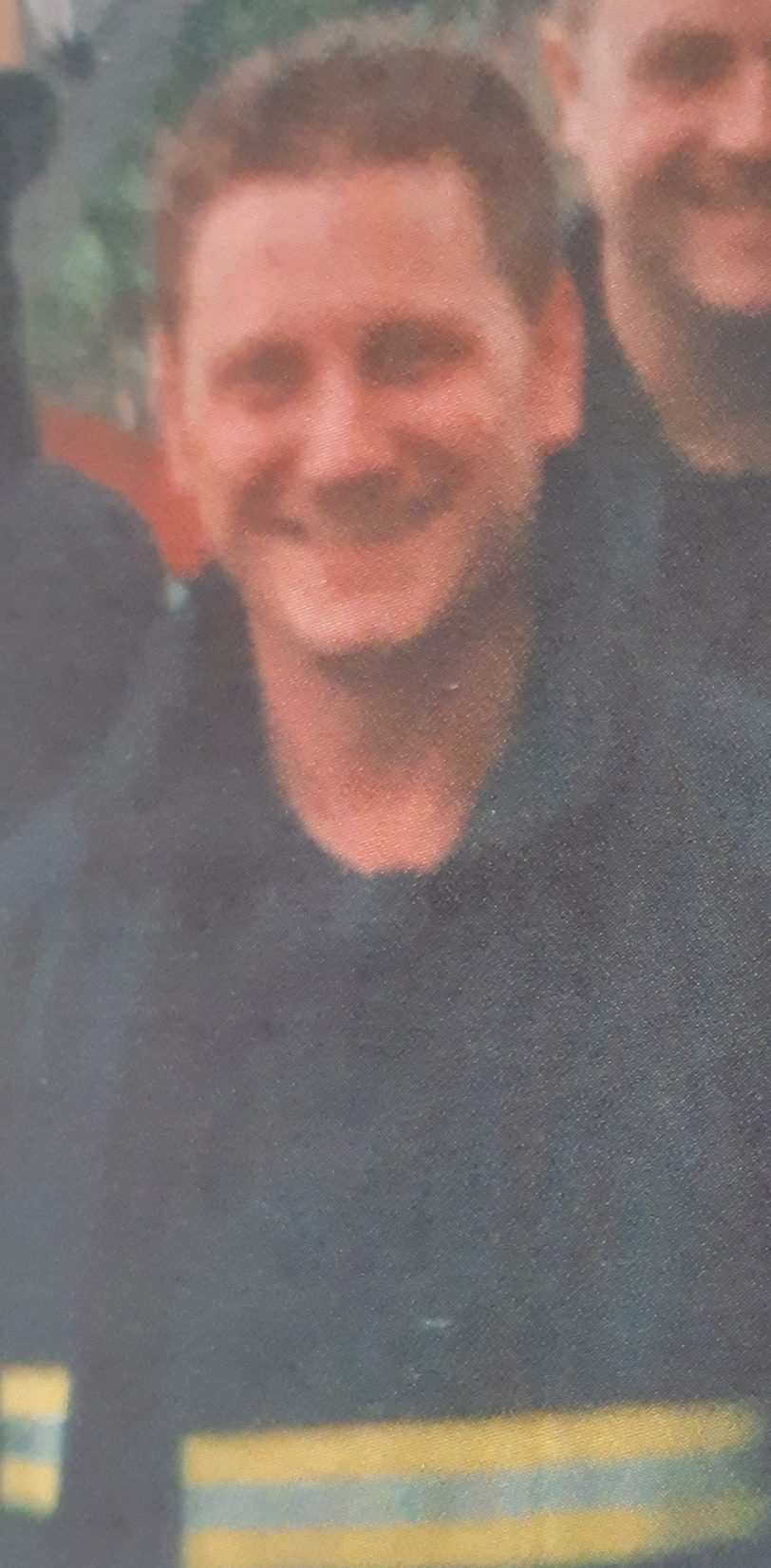
He has also attended several of our Living Well Groups, which exist to support all retired members of the fire and rescue service community.
He says of the groups: “I’ve done the casual chats a few times and also some talks on prostate cancer and testicular cancer, which were really interesting. There was also a mental health one and a pain one, which I joined because of my MS – sometimes I get a bit of pain, so it was like a refresher course for me.
“The groups are very much an opportunity to connect with other fire service retirees. When I first went on, it was a cup of tea and a chat, and I got a chance to meet people – it’s a community. What I really like about it is you can pop along for as long as you like, there’s no obligation to stay the whole time.
“The last year has left a lot of people feeling isolated and the groups are a great chance to re-connect. When I retired, the lockdown happened quite soon afterwards, so they definitely helped me. If I’m in the house and don’t have anything going on, I know there’s a chat coming up that I can log into or go to. I really enjoy listening to the older guys who’ve been retired for 30 odd years, it’s so interesting!”
Owen says knowing the charity is there for him for life is the biggest reassurance he could ask for. He’s now facing having to move his mum into a nursing home, and says he’s already been offered support from our Welfare team, should he need it.
“I know if I need a bit more advice or some time, I only need to pick the phone up and they’ll be there for me,” says Owen. “It’s like having a safety net underneath you. If you feel like you’re going to step off the tight rope, knowing the support is there if you need it is a reassurance. The trick though is asking for help, that’s what I’ve learned over the years.
“I’ve been donating throughout my career, and it’s important that people keep supporting and doing voluntary bits and pieces, because they’re there for you. If you’ve been in the charity for five years, you’re basically a lifetime member. It’s fantastic, it really is.”
Owen also opens up about his experience in our Shout!Podcast. You can listen to his episode here.
To find out more about alcohol or substance addiction, plus the places you can find support, visit our website here. And if something is affecting your physical or mental health, or you need welfare support, let us help. Call our Support Line on 0800 389 8820 or make an enquiry online.

